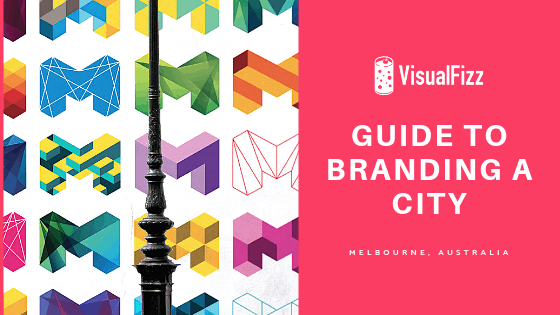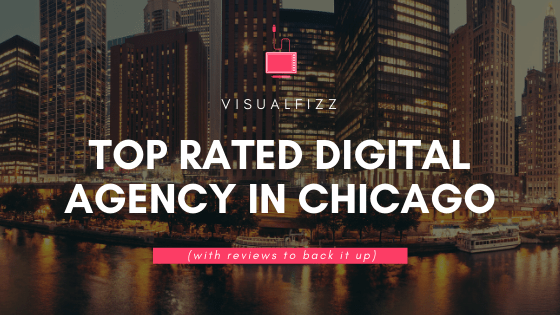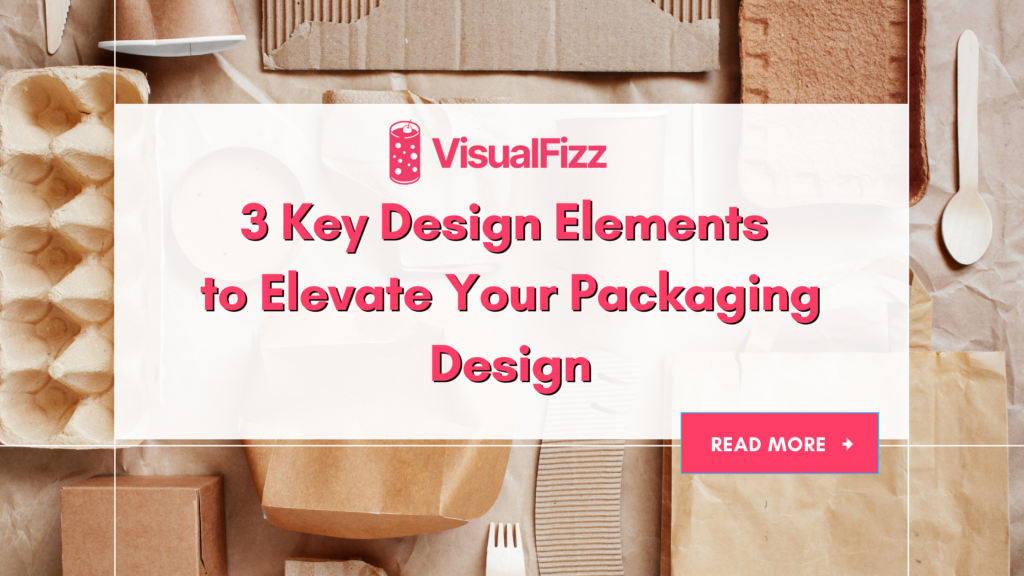
Did you know that 72% of Americans are influenced by packaging design when making a purchase? Moreover, 67% say packaging materials matter too. If you’re selling a physical product, this isn’t something to overlook—your packaging design is a core part of how your product and brand are perceived.
When it comes to designing effective packaging, understanding the psychology behind consumer decision-making is crucial. Packaging isn’t just about looks; it taps into deeper psychological triggers that influence how people perceive your brand and products. For more insights into how consumer behavior is shaped by psychological principles, check out our article on the Psychology in Marketing and Advertising, which dives into the strategies brands can use to connect with customers on a deeper, emotional level.
In an increasingly crowded marketplace, standing out on the shelves is no easy task. But successful packaging does more than just attract attention—it also connects with consumers on a deeper psychological level. Here are three essential design elements to focus on when creating impactful packaging.
1. Color Matters in Packaging
Color doesn’t just grab attention—it triggers emotional responses. If you’re aiming to catch eyes, color is your best tool, as this is the first thing consumers will notice about your packaging.
When choosing colors, it’s important to consider both aesthetics and psychology. Different colors evoke different emotions and can have positive or negative associations depending on the context. Here’s a breakdown of what colors mean in branding:
- Yellow: Warm, happy, and often linked to speed, making it ideal for fast-food restaurants and delivery companies.
- Orange: The color of energy and enthusiasm, perfect for brands looking to stand out as unique.
- Red: Bold and exciting, commonly used by tech brands and products aimed at children.
- Purple: Signals creativity and imagination, but also luxury, due to its historic association with royalty.
- Blue: Represents trust and strength, which is why it’s favored by banks and healthcare organizations.
- Green: Linked to health and purity, making it a popular choice for food and drink brands promoting healthy lifestyles.
Pro Tip: Conduct A/B testing with different color schemes to determine which palette resonates best with your target audience and industry.
2. Material and Shape: Packaging That Speaks Quality
The material of your packaging does more than protect the product—it influences how consumers perceive its value. High-quality materials often signal a high-quality product. That’s why luxury brands invest in premium packaging that adds to the unboxing experience. On the other hand, affordable brands choose practical materials that reflect the product’s price point and reflect the customers’ values.
How Packaging Materials Affect Brand Perception
The material and shape of your packaging don’t just protect your product—they influence how your product is perceived. High-end brands often choose luxurious, custom-fitted materials that elevate the unboxing experience, while more affordable brands focus on practicality and cost-effectiveness.
For example, high-end tech gadgets and luxury jewelry often come in carefully designed boxes that enhance the unboxing experience. The snug fit of an Apple product or the silky smooth texture of a jewelry box both serve to elevate the perceived value of the product inside.
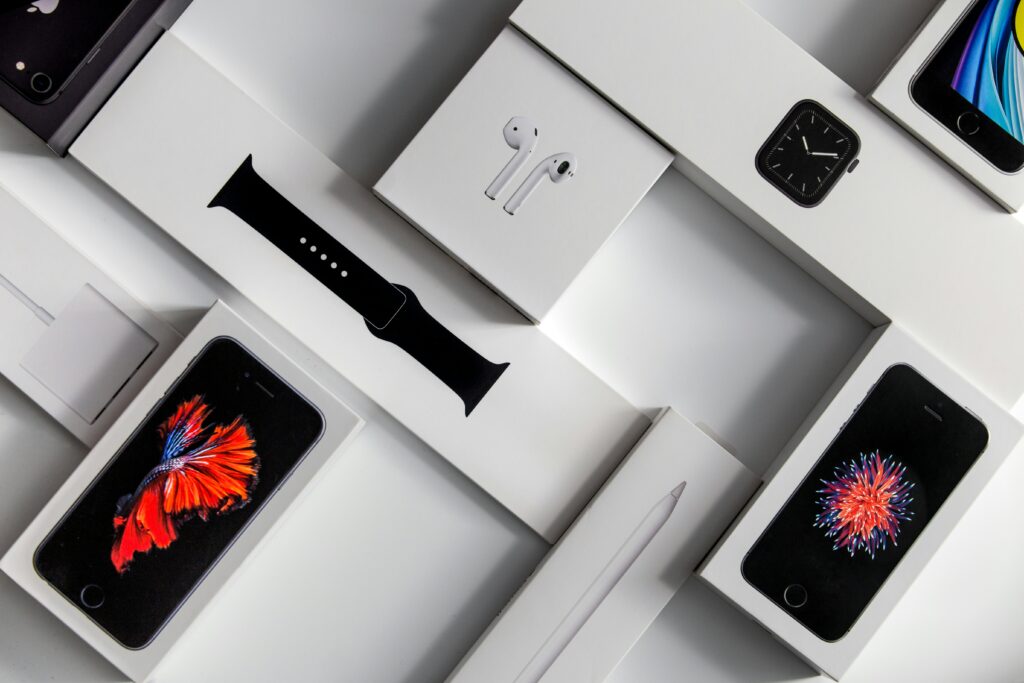
https://unsplash.com/photos/silver-iphone-6-on-white-table-PP1UkTDYJkc
Reversely, budget-conscious brands focus on more affordable materials without sacrificing functionality. Today, eco-conscious packaging is in high demand, with many consumers prioritizing sustainability.
Thoughtful packaging design is about more than just functionality—it’s about creating a memorable experience. Whether you’re using eco-friendly materials or designing custom shapes, packaging is a powerful extension of your brand identity.
Think of packaging as more than just a container—it’s an extension of your product. A well-designed package can feel like an invitation, drawing customers into the brand experience before they’ve even touched the product inside. Details like material choices or an unexpected shape can surprise and delight, leaving a lasting impression.
For additional inspiration on how packaging design can make this kind of impact, check out this packaging design guide to see how form and function come together seamlessly.
Sustainability Trends in Packaging
Switching to eco-friendly packaging materials is no longer just a trend—it’s an expectation. Many consumers today prioritize sustainability when making purchasing decisions.
Pro Tip: Consider using sustainable or recyclable materials in your packaging. Not only does it appeal to environmentally conscious consumers, but it also enhances your brand’s image as responsible and forward-thinking.
3. Typography: The Unsung Hero of Packaging Design
Typography plays a critical role in how consumers interact with your product packaging. Beyond aesthetics, the right font can convey important brand attributes such as luxury, modernity, or playfulness.
Understanding Font Families for Packaging
The right font doesn’t just communicate information; it influences how consumers feel about the product. Different fonts convey different meanings and trigger various emotions. For example:
- Serif: Serif fonts have traditionally been used in print, and have a small line attached to the end of larger strokes. Their use in traditional print materials signifies classic, professionalism and authority. As a result, serif fonts are a popular choice for luxury brands; both Rolex and Tiffany & Co. use serif fonts for their brand name.
- Sans-serif: Sans-serif fonts are used for web copy and come without the small strokes that indicate a serif font. They help to give off a minimal, friendly feel and are generally considered more modern. Google, Burberry, and Spotify have all rebranded using a sans-serif font in an attempt to bring their brand into the present day.
- Script: Script fonts, sometimes referred to as cursive fonts, are influenced by handwriting and take the appearance of a hand-written message. In terms of brand psychology, the handwritten nature can be taken as less formal and child-friendly or, depending on the font, can be used to indicate a sense of luxury or prestige. More casual script fonts are used by Kellogg’s, Disney, and Barbie whereas more formal script fonts are used by high-end jewelry brands like Cartier.
- Monospace: Monospace refers to fonts where all the characters take up the same amount of horizontal space. Their typewriter feel can give off a classic, old-fashioned vibe, but their use in coding has seen them become a popular choice with modern tech brands like blockchain projects.
- Decorative: Decorative fonts are considered novelty fonts, and fall outside of the other font families. As a result, they’re often used to evoke playfulness or uniqueness and can be a great way to stand out on a product shelf. As a result, you’ll find that packaging for chocolate bars and fizzy drinks often uses decorative fonts to draw the eye of the shopper.
Optimizing Typography for Readability
Your typography should not only align with your brand’s message but also be legible and scalable. Ensure that key information—such as the product name, usage instructions, and ingredients—are easy to read both up close and from a distance. This is especially important for products on crowded retail shelves.
For eCommerce brands, packaging is an extension of the overall customer experience. Beyond aesthetics, it’s important to think about how the design can align with your brand’s digital presence and the seamless experience customers expect. As eCommerce brands focus on personalization and leveraging data to connect with consumers, packaging becomes another tool for building loyalty. Learn more about how eCommerce packaging and personalized experiences can elevate your brand.
Pro Tip: Ensure your typography is readable from a distance, especially for products sold in busy retail environments. Combining an eye-catching font with a clean, legible one for important details (like product name and ingredients) can create a balanced, functional design.
The Importance of Packaging Design for Consumer Decisions
Packaging design is more than just an outer shell—it’s a key component of your brand’s identity and consumer experience. By carefully choosing the right color palette, materials, and typography, you can create packaging that not only grabs attention but also leaves a lasting impression on consumers. Thoughtful, strategic packaging design can be the difference between your product being overlooked or making a real impact.
A strong brand connects with its audience through every touchpoint, and packaging is one of the first interactions consumers have with your product. From creating consistency in design elements to aligning packaging with your company’s core values, having a cohesive brand strategy is key. Learn more about how a thoughtful brand strategy can help your packaging tell a stronger story and build deeper connections with your audience.
Never underestimate the impact of packaging design. It can differentiate your product, convey quality, and create an emotional connection with your audience—all of which drive consumer decisions.
Guest Post Author Bio: Toby Patrick is a freelance business writer from Manchester, UK. He is a marketing graduate and has completed an internship with a packaging design agency based in Manchester. He now enjoys exploring the intersection of marketing and psychology and turning his thoughts into opinion pieces designed to provoke the thoughts of those who read.
Note: this post, and the views and advice included therein, are a guest post from a 3rd party that is not VisualFizz. Please reach out to our team directly if you’d like to discuss how the content included in this guest post could be relevant to your marketing goals.
Want to be featured on the VisualFizz blog? Learn how to Write for Us.
Publishing Date:

